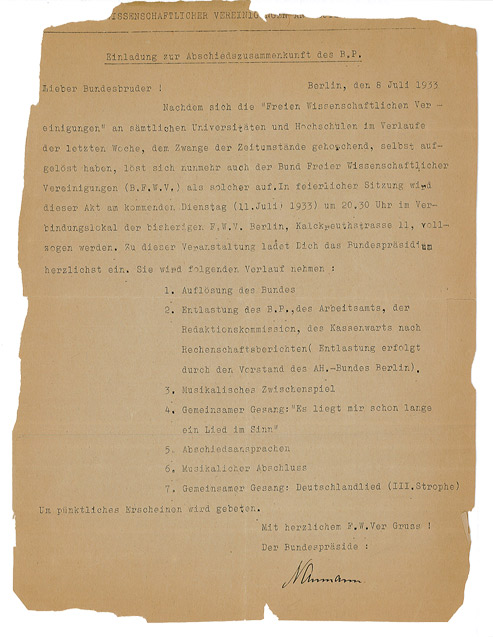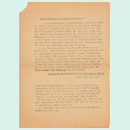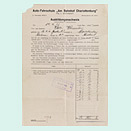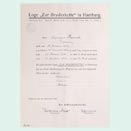Saturday
8 July 1933
Invitation to the farewell meeting of the national executive board of the Federation of Free Academic Associations
The first Free Academic Association was founded in 1881 in Berlin in response to the Berlin Antisemitism Dispute. As a non-denominational fraternity, it was open to Jewish and Christian students alike and devoted itself to combating the antisemitism rampant at German universities. At the same time, it embraced a nationalist ethos. Inspired by its example, thirteen additional associations were founded in university towns across Germany. However, the number of non-Jewish members declined dramatically over the years and by the end of the nineteenth century the organizations consisted almost exclusively of Jewish students.
The farewell celebration held by the FWV on 11 July 1933—almost twenty-five years to the day after its founding—was a melancholy occasion. Rudolf Zielenziger, the last editor of the federation‘s monthly reports and the composer of many FWV songs, wrote: "But we young FWV members pledge to the older comrades amongst us today that we will always remain upstanding members in heart, keep alive the memory of our humanity, struggle and exuberance, and allow intimations of a new life to continue to have a formative effect upon us." Slightly altering a famous Goethe quote, he concluded with the words: "Here I was a human being. Here I was permitted to be one. Over? That is difficult to believe, but what you were and what you have given us will remain mine, and time cannot take it away from me." The attendees sang the third stanza of the "Deutschlandlied" ("Song of Germany", the German national anthem) in order to emphasize their German identity in a final act of collective self-assertion. The first line of this stanza—"Unity and justice and freedom"—had been the FWV‘s slogan since its founding.
In the following years most of the FWV‘s members emigrated or fled from Germany. Felix Naumann, who had signed the invitation as its national president, was not so fortunate: he was deported to Theresienstadt in late May 1943 together with his wife and in October 1944 he was taken to Auschwitz and murdered there.
Aubrey Pomerance



